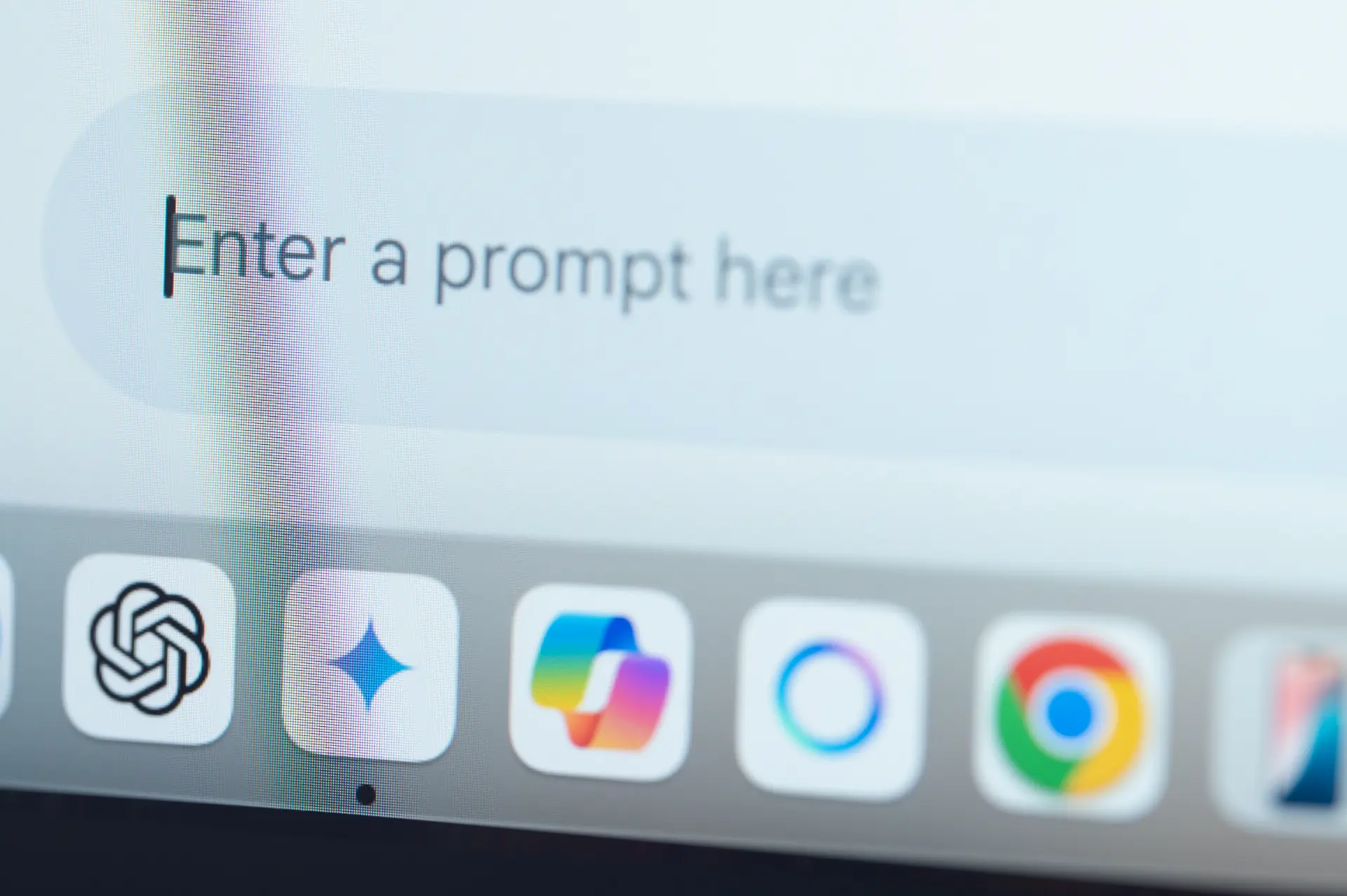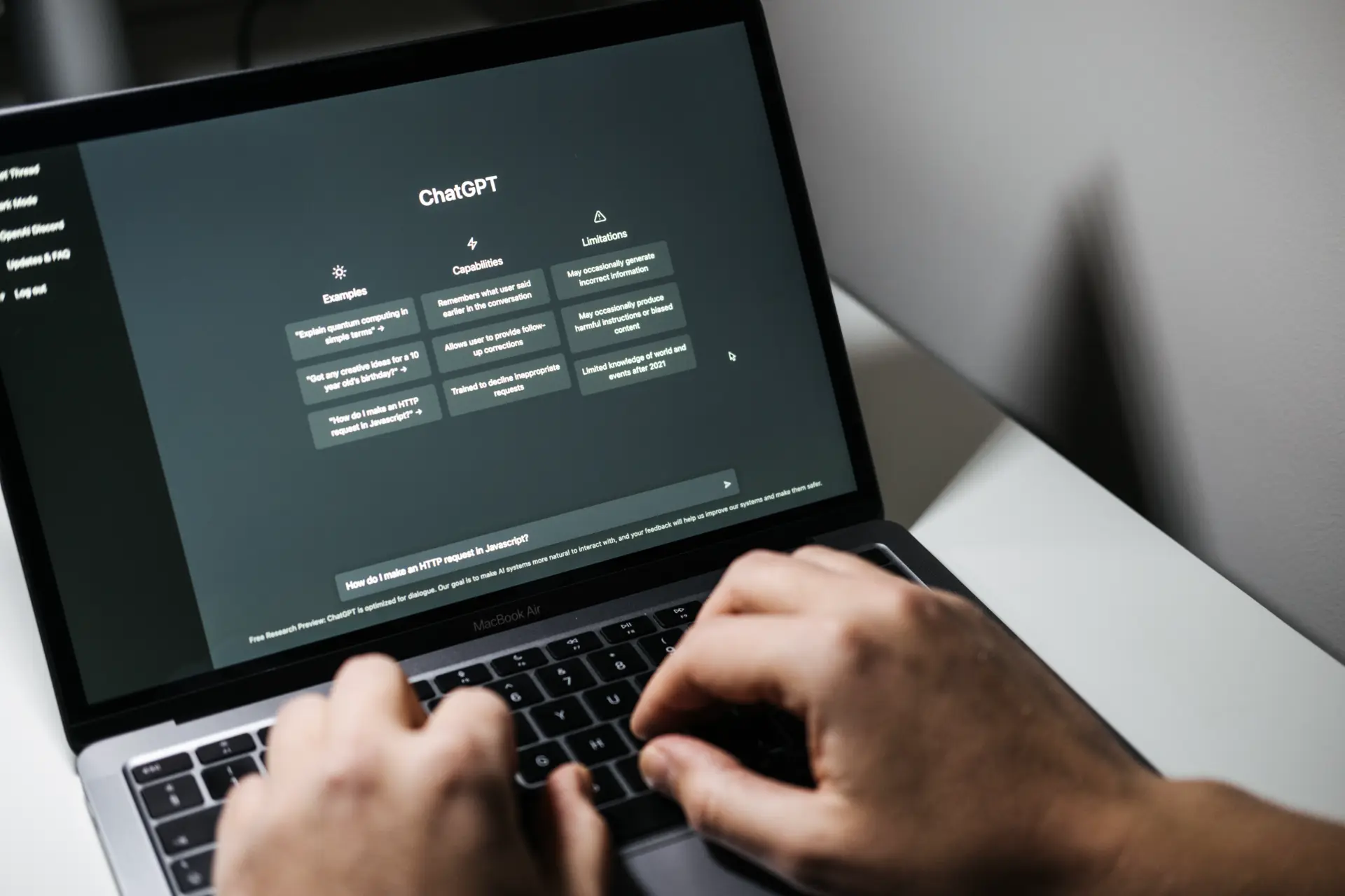Table of contents
- ChatGPT and security
- The main cyber security risks of ChatGPT
- ChatGPT and misuse by malicious actors
- Protecting personal data with ChatGPT
- How to enhance cyber security with ChatGPT
The evolution of artificial intelligence models like ChatGPT offers tremendous opportunities, but it also brings new challenges for cyber security.
ChatGPT and security
Thanks to its ability to process data and respond realistically to human inputs, ChatGPT has quickly become a widely used tool across various industries. However, this versatility also makes it a potential target for cybercriminals.
In this article, we will explore the risks of ChatGPT in cyber security and the measures that can be taken to protect personal and corporate data from attacks.
The main cyber security risks of ChatGPT
The use of ChatGPT for communication and data management presents some cyber security risks that cannot be underestimated.
Cyber attacks such as phishing, data theft, and manipulation of sensitive information are among the primary concerns.
One of the most evident risks is that ChatGPT can be used by threat actors to simulate realistic human interactions in phishing emails.
Thanks to its ability to generate natural-sounding text, ChatGPT can create fraudulent emails that appear authentic, increasing the chances that users will fall into phishing attacks’ traps.
Cybercriminals could use the chatbot to obtain personal information or convince users to provide sensitive data.
Another risk involves attacks based on malicious code.
While ChatGPT cannot autonomously generate complex malicious code, it could be exploited to assist in cyber attacks by writing snippets of code that cybercriminals could then manipulate further.
This could facilitate the introduction of malware or monitoring software into sensitive systems.
ChatGPT and misuse by malicious actors
The use of AI chatbots like ChatGPT in unauthorized contexts can pose significant risks to corporate and private cyber security.
ChatGPT could be used to conduct large-scale social engineering attacks, generating messages that closely mimic human communication.
Malicious actors might exploit these capabilities to gain access to personal information or deceive company employees, facilitating access to protected systems.
Moreover, ChatGPT’s language automation can be used to overcome linguistic barriers and extend the reach of attacks.
This means that cyber attacks could be carried out more quickly and on a global scale, with the ability to tailor messages to the linguistic and cultural context of the target.

Protecting personal data with ChatGPT
To reduce the risks associated with using ChatGPT, it is crucial to implement cyber security strategies that limit the sharing of personal data and sensitive information.
One of the first measures to adopt is educating users about the dangers of interacting with AI chatbots and the importance of identifying potential phishing attempts.
Additionally, companies can restrict access to ChatGPT in sensitive work environments, limiting its use to authorized purposes only.
This kind of restriction minimizes the risk of the chatbot being used for fraudulent purposes or collecting sensitive information.
Implementing data and activity monitoring systems is another fundamental tool: monitoring interactions between users and AI chatbots helps identify suspicious activities and prevent sensitive data from being exposed to cybercriminals.
How to enhance cyber security with ChatGPT
There are practical measures to leverage ChatGPT’s potential while maintaining strong data protection. Machine learning systems like ChatGPT should be constantly regulated and supervised to prevent them from becoming a cyber security threat.
Some useful strategies include:
- Setting clear usage policies for AI chatbots
This involves establishing strict rules about who can access and interact with ChatGPT and defining authorized use cases.
- Training staff to identify and prevent potential cyber attacks related to chatbots
Often, the weakest link in cyber security is human error. Proper training can reduce the risk of falling victim to ChatGPT cyber attacks such as phishing attacks or other threats.
- Implementing data encryption and anonymization measures
Any data processed by ChatGPT should be encrypted and anonymized to prevent unauthorized access to personal data.
In conclusion…
The integration of ChatGPT into many corporate and private contexts is a rapidly growing reality. However, using advanced tools like ChatGPT requires constant attention to cyber security to protect sensitive data from potential cyber attacks.
Cybercriminals will continue to look for new ways to exploit artificial intelligence technologies for their gain, but with a combination of restrictive policies, training, and advanced protection technologies, these risks can be effectively mitigated.
The key to using ChatGPT safely lies in balancing innovation with solid cyber security practices.
Questions and answers
- What is ChatGPT in terms of cyber security?
ChatGPT is an AI model that, while useful, can be exploited for attacks such as phishing and sensitive data collection. - Is ChatGPT safe for companies?
Yes, if security measures like restrictive policies and interaction monitoring are applied. - How can ChatGPT be used for phishing attacks?
ChatGPT can generate deceptive emails that mimic human communication, increasing the risk of phishing. - What are the cyber security risks associated with ChatGPT?
Risks include data theft, phishing, and misuse for writing malicious code. - Can ChatGPT be used to write malware?
Not directly, but it could help criminals generate exploitable code fragments. - Are there systems to protect ChatGPT from attacks?
Yes, usage policies, data encryption, and staff training reduce risks. - What are threat actors in relation to ChatGPT?
They are individuals or groups exploiting ChatGPT for malicious activities, like phishing. - Does ChatGPT collect personal information?
It depends on the implementation, but anonymizing and protecting sensitive data is essential. - How can companies protect personal data on ChatGPT?
By applying strict access policies and encrypting information. - What security measures are recommended for using ChatGPT?
Clear policies, data anonymization, and interaction monitoring are among the main measures.
